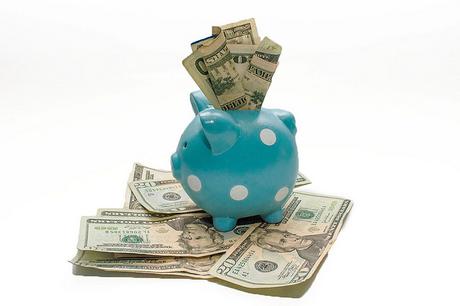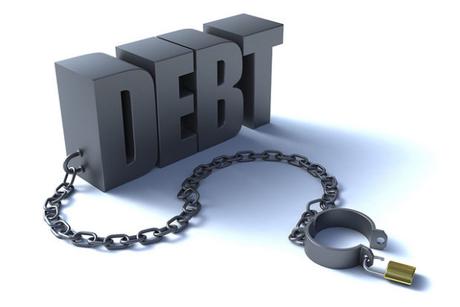
Why You Need to Understand Interest Rates
Knowing the basics about money is absolutely essential in 2020. The days of wanting a man to take care of all the financial decisions are long gone, along with wearing heels and pearl necklaces to do the dishes. Thank goodness! Women work. We earn money, support ourselves, support our families. Single or partnered, we need to be full participants in deciding what happens to that money.
When I published Living Singlish: Your Life, Your Way, my lifestyle guide for young women, I included an entire chapter on finance. Basics like budgeting, saving, and setting financial goals are all explained clearly, without the mumbo-jumbo I found so many financial sites.
I was surprised at the number of women who asked me to explain interest rates. Questions like ' is interest good or bad?' and 'why do I have a 28% interest rate on my credit card but only 1% in my savings account? ' showed me that this very basic concept still confuses many women.
This explanation is for all the women out there who wonder but are afraid to ask. Because knowledge is power.
When it comes to money, knowledge is power
Interest rates: good and bad for you
Interest is the amount of money that one party pays the other, for the use of the money.
The bank pays you interest for the right to keep and use your money for their own operations.
The interest on your debt balance is the amount you pay the debt holder so that you can use the rest of your money as you choose, rather than having to pay back the debt.
Interest is not inherently good or bad, but it can work for you or against you. Let's look at two examples.
Interest on savings

Let's say you have $10,000 in your savings account, and the bank pays 5% annual interest (that's more than banks are paying now, but it makes the numbers easier). At the end of year one, the bank owes you $500. If you take nothing out and add nothing to your account, at the beginning of year two your balance is $10,500, and at the end of year two, it's $11,025. You just made $1,025 by doing nothing. At the end of 10 years, with no further deposits, that balance is now $15,513.28.
What if you don't just let that balance sit? What happens if you add to it every year? Let's say you added $1,000 to your account at the beginning of every year, starting with year two. Now your starting balance for year two is $11,500, and at the end of year two it's $12,075.
Stick with this for 10 years and at and the end of year 10, instead of $15,513.28 your account is worth $27,866.84.
Can't put aside that much? Save what you can. Even people making very little money can save and invest. I call them Financially Inspiring Low Income Investors. If you think you can't save enough to make a difference, read their stories.
That's the power of reinvesting and compound interest: you earn interest on your interest. So save whatever you can -there's free money waiting!
Interest on debts

Interest can work against you too. Let's say that you have a $10,000 balance on your credit card, and your interest rate is 20%. After one year, if you make no payments, you will owe $12,000. That's an extra $2,000 you have to pay, without buying anything else. No clothes, no meals, no holidays, just more debt. Ouch! Do you really want to pay that much for nothing?
Credit card is only one type of debt. School loans, mortgages, car loans, and personal loans all work the same way.
Where do interest rates come from?
Interest rates are a measure of ris k. The lender considers how likely the borrower is to default, or not pay back the loan. Higher risk borrowers get charged higher interest rates.
If you loan your brother $50 for a night out, and he has always paid you back within a week, you feel pretty good about the loan. But if your brother still owes you every penny you have ever lent him, the chances that he pays this one back are pretty slim (and I wonder why you are loaning him money at all, but that's a different topic).
Lenders look at you the same way; they use your credit score to decide how big a risk they are taking by lending you money. Someone with a higher credit score can get a lower interest rate than someone with a lower score. You can check your own credit score for free at sites like Experian. Some credit card companies also let you monitor your score. You do not have to pay for this.
Paying off your debts not only helps your finances, it helps your credit score by lowering the interest rate on any debts you do incur.
Simple, Smart Money Management

Follow a few easy tips to get your finances pointed in the right direction.
- Maximize the good interest, by putting as much as you can in savings and investments.
- Minimize the bad interest, by paying as much as you can spare each month, and always pay more than the interest. Only paying off the principal really reduces your debt. If you have a high-interest rate loan, explore ways to lower the interest rate.
- Avoid adding new debt. Buy only what you can afford. Make purchases with debit cards or cash. If you do put something on your credit card, pay the balance in full the same month.
- Understand your budget. Use a simple budgeting tool like my free Singlish budget worksheet.
Yes, money management can be complicated. But the concepts are straightforward and anyone can learn them. Interest doesn't have to be mysterious. Now that you understand it take control. Use what you have learned to make your financial situation better.

Dr. Marne Platt is the President of Fundamental Capabilities and the author of 3 books (so far): Living Singlish: Your Life, Your Way; Professional Presence; and PREP For Success. Originally a practicing veterinarian, she built a successful career in the pharmaceutical industry. She founded Fundamental Capabilities to 'pay it forward' by providing career development workshops and coaching for women. 'Living Singlish: Your Life, Your Way' is an 'older sister in your pocket' packed full of advice for young women on building their own independent and exciting life. 'Professional Presence' and PREP For Success' help you strengthen your spoken and unspoken communication and leadership presence.

